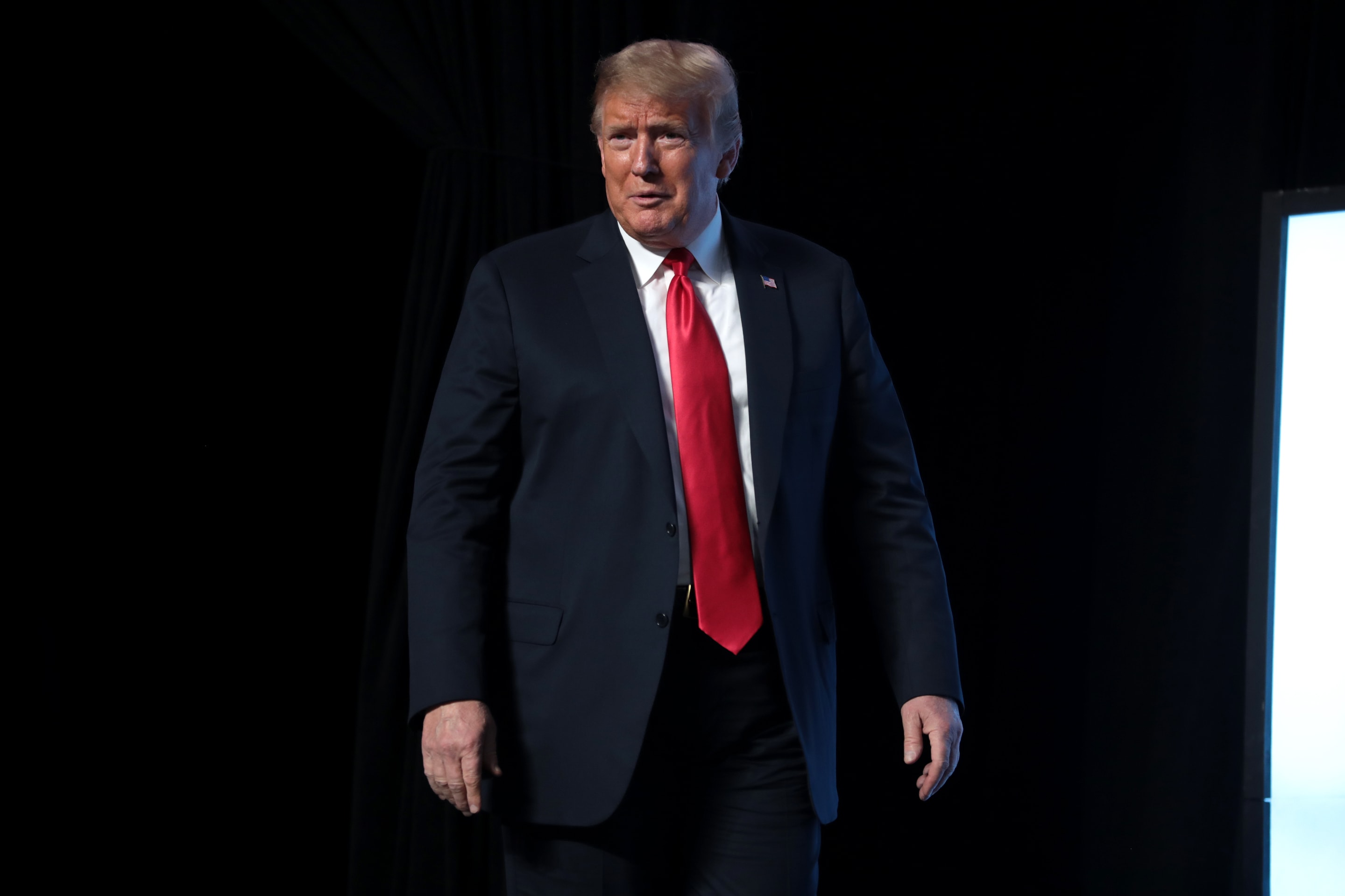
Should the President Create an Inter-Agency Strategy to Secure 5G for the U.S. and its Allies? (H.R. 2881)
Do you support or oppose this bill?
What is H.R. 2881?
(Updated January 18, 2022)
This bill — the Secure 5G and Beyond Act of 2020 — would require the president to create an inter-agency strategy to secure 5th generation (5G) and future generation technology and infrastructure in the U.S. and in countries that are America’s strategic allies. The strategy would aim to protect the competitiveness of U.S. companies, the privacy of American consumers, and the integrity of standard setting bodies against political influence.
It would also designate the National Telecommunications and Information Administration (NTIA) as the Executive Agent to coordinate the strategy’s implementation. The NTIA would work with the Federal Communications Commission (FCC) Chairman, Homeland Security Secretary, Director of National Intelligence, the Attorney General, and the Secretary of Defense to develop and implement the strategy.
Argument in favor
5G will usher in a new wave of products and services for telecommunications customers, but the shift has to be managed well through a coordinated federal-level strategy. This bill will help ensure that the government has a plan to oversee 5G’s secure deployment both domestically and in allied nations.
Argument opposed
A government-led effort on 5G implementation in the U.S. is needed to respond to the challenges posed by China’s aggressive 5G deployment efforts, but this bill wouldn’t go far enough to protect the integrity of 5G networks in the U.S. or those in allied nations.
Impact
Wireless customers; wireless networks; 5G networks; NTIA; FCC Chairman; Homeland Security Secretary; Director of National Intelligence; Attorney General; and the Secretary of Defense.
Cost of H.R. 2881
The CBO estimates that enacting this bill would cost less than $500,000 over the 2020-2024 period.
Additional Info
In-Depth: Rep. Abigail Spanberger (D-VA) introduced this bill to create a national 5G strategy and protect key telecommunications infrastructure in the U.S. and in allied nations from national security threats posed by China’s Huawei:
“The United States has long been responsible for the groundbreaking achievements of the digital age. However, the growing prominence of 5G telecommunications systems in China and abroad, particularly through Huawei, should concern all Americans. To protect our national security and maintain our economic strength, we must build a nationwide gameplan to strengthen our mobile networks and protect the privacy of American families. Today, I’m proud to lead the introduction of a bipartisan bill to require a smart strategy, because safeguarding Americans’ access to the next generation of telecommunications should never be a partisan issue. As we work to achieve faster internet speeds and wider connectivity, our legislation would make sure we have a plan to deliver innovative technology to U.S> consumers, compete with China, and prevent foreign influence in 5G networks.”
Original cosponsor Rep. Susan Brooks (R-IN) added:
“The next generation of mobile telecommunications, 5G, holds tremendous potential to revolutionize the way we communicate and work with one another. As the co-founder and co-chair of the 5G Caucus, I understand how important it is for our laws to support this kind of innovation. But with such innovation and technological advancements, the federal government must ensure our national security by protecting Hoosiers and Americans across the country from potential cyber threats. The Secure 5G and Beyond Act is a bipartisan bill working to protect our next-generation telecommunications systems in the United States from dangerous foreign actors while continuing to allow the internet to transform the way we live for the better.”
This bill passed the House Foreign Affairs Committee by unanimous consent and the House Energy & Commerce Committee on a voice vote. It has the support of 27 bipartisan cosponsors, including 16 Democrats and 11 Republicans.
A similar version of this bill which would also prohibit the nationalization of the 5G network, has been introduced in the Senate with the support of 10 bipartisan cosponsors, including six Republicans and four Democrats.
Of Note: Under the Trump administration, the U.S. has already been actively involved in lobbying foreign governments to secure their 5G networks against potential risks from Chinese government-backed communications equipment suppliers. As of November 2018, the U.S. had asked the Australian, Canadian, South Korean, German, Italian and Japanese governments to block Huawei hardware’s use in their 5G networks.
In response to the U.S. request, one major Italian carrier said it would be “a very tough call” to avoid Huawei equipment. Citing Huawei’s leadership position in the telecom industry, the Italian carrier suggested that it may not be possible to cooperate with the U.S. on its initiative to keep Huawei equipment out of U.S. allies’ 5G networks.
Media:
Sponsoring Rep. Abigail Spanberger (D-VA) Press Release (Committee Passage)
Summary by Eric Revell with contributions from Lorelei Yang
(Photo Credit: iStock.com / alexsl)The Latest
-
 IT: 🛢️ New Vermont measure could charge Big Oil for climate damages, and... Do you think Trump is guilty?Welcome to Friday, May 10th, friends... Vermont could be one of the first states to hold Big Oil accountable for the damages read more...
IT: 🛢️ New Vermont measure could charge Big Oil for climate damages, and... Do you think Trump is guilty?Welcome to Friday, May 10th, friends... Vermont could be one of the first states to hold Big Oil accountable for the damages read more... -
 Stormy Daniels Takes the Stand in Trump Hush Money TrialUpdated May 9, 2024, 5:00 p.m. EST Adult film star Stormy Daniels, also known as Stephanie Clifford, spent two days on the stand read more... Law Enforcement
Stormy Daniels Takes the Stand in Trump Hush Money TrialUpdated May 9, 2024, 5:00 p.m. EST Adult film star Stormy Daniels, also known as Stephanie Clifford, spent two days on the stand read more... Law Enforcement -
 Vermont Measure to Charge Big Oil for Climate DamagesWhat’s the story? Vermont is expected to become one of the first states to hold Big Oil accountable for the damages caused by read more... Environment
Vermont Measure to Charge Big Oil for Climate DamagesWhat’s the story? Vermont is expected to become one of the first states to hold Big Oil accountable for the damages caused by read more... Environment -
 IT: Trump's 2016 'deny, deny, deny' campaign strategy, and... How can you help the civilians of Ukraine?Welcome to Wednesday, May 8th, weekenders... As Trump's hush money trial enters it's third week, the 2016 campaign strategy of read more...
IT: Trump's 2016 'deny, deny, deny' campaign strategy, and... How can you help the civilians of Ukraine?Welcome to Wednesday, May 8th, weekenders... As Trump's hush money trial enters it's third week, the 2016 campaign strategy of read more...
 Climate & Consumption
Climate & Consumption
 Health & Hunger
Health & Hunger
 Politics & Policy
Politics & Policy
 Safety & Security
Safety & Security
